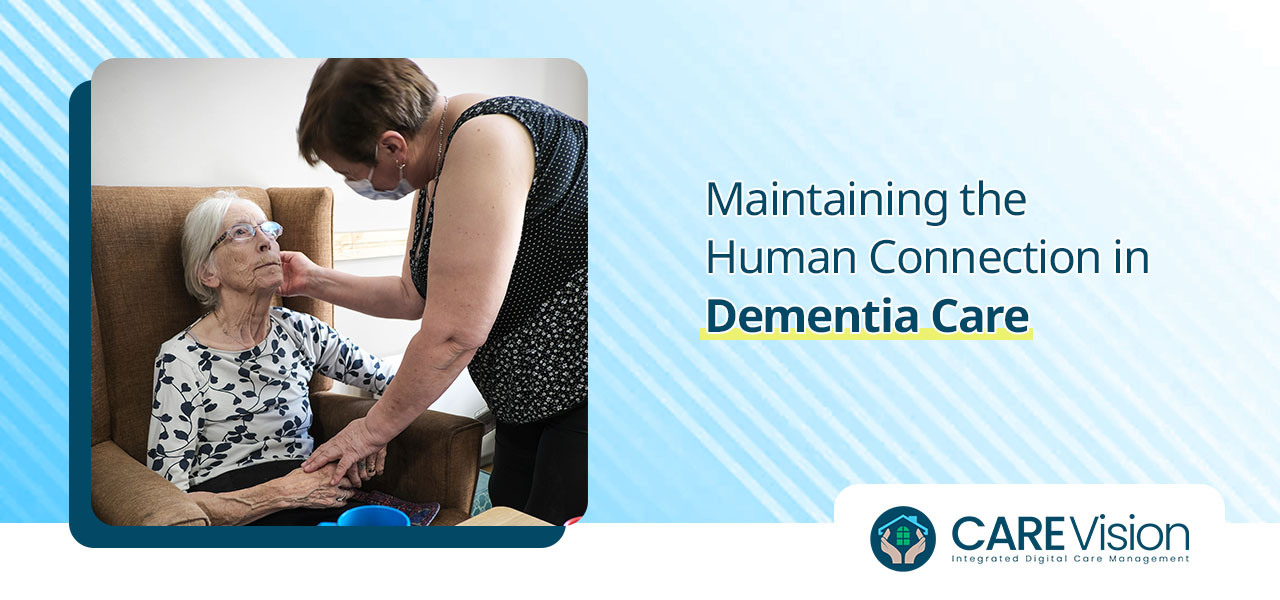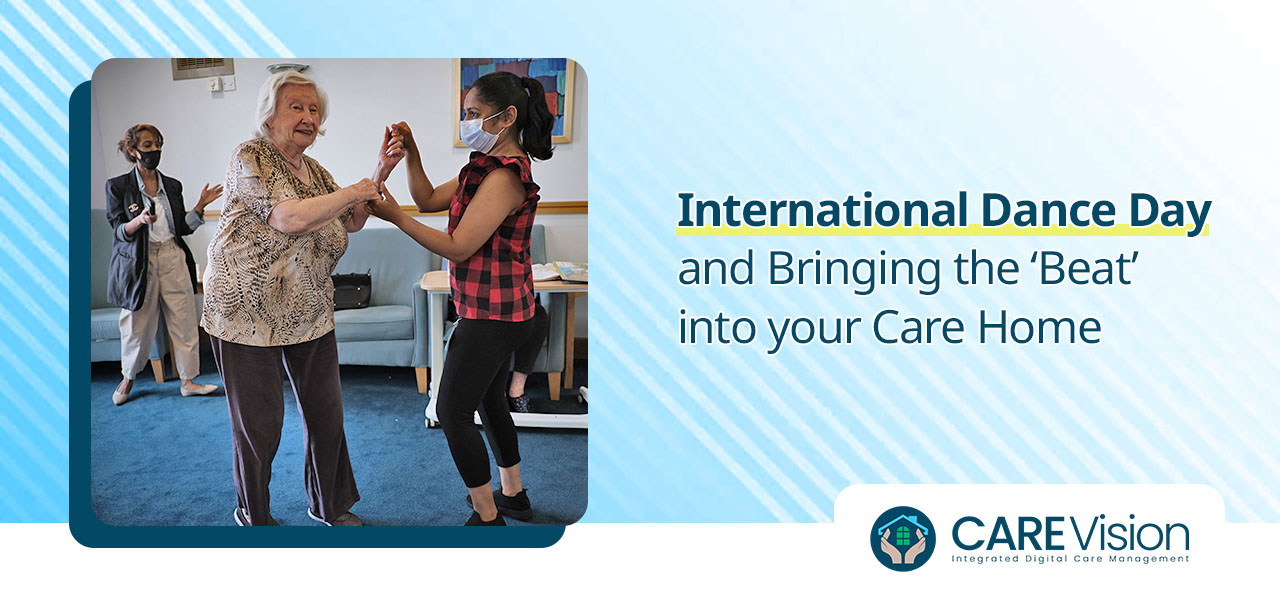A new campaign from Dementia UK (https://www.dementiauk.org) is highlighting what it is like for family members and friends who are supporting someone they love who has dementia. Called ‘We live with dementia,’ the campaign raises the important point that a dementia diagnosis does not affect one person, but also many others around them. When someone reaches the point of needing residential care, their support network remains crucial to their wellbeing. So, how can that network be supported themselves?
Keeping track with technology
There are several areas in which someone supporting a loved one with dementia who is living in a residential care home can receive support from that home and care management team. Chief of these is receiving reassurance that their loved one is being properly cared for and looked after.
Care homes can take advantage of technology to connect with families, update reports, monitor behaviour and wellbeing and share key data with a wider medical team. Carers can track patterns around how well residents can carry out daily tasks, as well as check on medication side effects to keep them safe.
All of this technological support and reporting can offer families the evidence they need to know that their loved one is in good hands. Other ways in which digital care management software can provide reassurance is through secure electronic visitors books that ensure only authorised visitors can access residents on site.
Planning tools help keep residents connected with their external support network through socialising, activities and outings. Staff training requirements can be monitored too – and sessions planned via the system to make sure that the care team knows how to interact with and care for residents with dementia.
Namaste and the power of love
Another key way in which care settings can help families of people with dementia is by offering a person-led, loving approach to caring for their loved one. Friends and family members will remember how the person was before they started having dementia symptoms. Knowing that the care they are now receiving is centred around supporting and communicating with their loved one as effectively as possible will help families come to terms with their situation far better.
Programmes like Namaste work with people with advanced dementia by focusing primarily on their personal needs, rather than solely on their medical ones. This helps bring physical and emotional responses back as a priority in the wider process and retains the ‘humanity’ involved in people’s care. Those living with dementia are not seen as just a name on a chart or a ‘problem’ to solve. They are given the respect dignity and human connection that we all crave, no matter how old or unwell we may be. It also helps reduce stress, making the caring process calmer and more straightforward. In turn, this can lessen anxiety for the person’s friends and family and strengthen trust between them and the professional care team.
Caring for the carers
Even when the day-to-day routines of caring for someone with dementia is undertaken by a residential care home team, friends and family members can still be heavily involved and may require help and support of their own. As well as being able to stay in close contact with the care home through technology like Care Vision, ‘human’ contact is also very important. Care home managers can offer family members essential advice and support around other life admin, such as taking decisions about future care, paying bills and applying for funding. Often, a kind word and reassuring update can help ease the minds of worried relatives and help them come to terms with the changes they are seeing in the person they love.
Other ways in which care teams can assist is to make communications as simple as possible, responding quickly to enquiries, offering to find out answers to questions that cannot be resolves straight away and enabling easy contact with their loved one. If the resident with dementia is unable to have a big say in how they are cared for, the ethos of ‘person-led care’ can be continued by involving their loved ones in decisions and plans instead. Ensuring that the person’s preferences and personality are respected as far as possible can go a long way to making the resident’s daily life more enjoyable and their relatives feel resected and involved.






